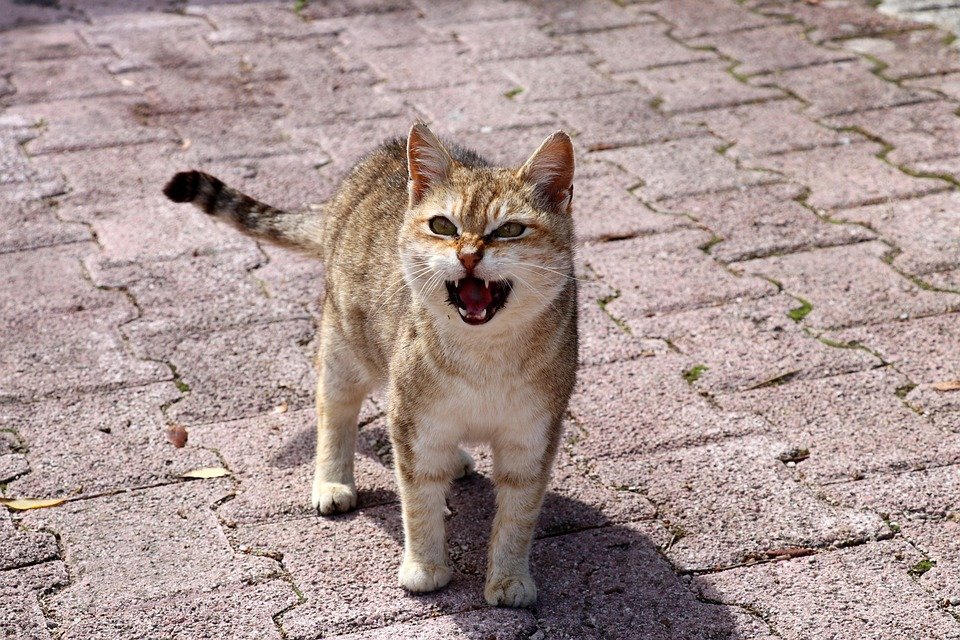
Silencing the Meows: A Guide to Quiet Cats
Introduction
Cats are known for their vocal nature, often meowing to communicate with their owners. While some cat owners find these meows endearing, others may find them disruptive or annoying, especially when they occur at night or early in the morning. In this article, we will explore the reasons behind excessive meowing in cats and provide practical tips and strategies to help quiet down your feline friend.
Understanding the Reasons Behind Excessive Meowing
Before we dive into the strategies to quiet down your cat, it is important to understand the reasons behind excessive meowing. Cats meow for a variety of reasons, including:
1. Attention-seeking: Cats may meow to get your attention, especially if they feel lonely or bored.
2. Hunger: Cats may meow to let you know they are hungry or want a snack.
3. Stress or anxiety: Cats may meow excessively when they are feeling stressed or anxious.
4. Medical issues: Cats may meow more than usual if they are in pain or discomfort due to an underlying medical condition.
5. Aging: Older cats may meow more due to cognitive decline or other age-related issues.
Now that we understand the reasons behind excessive meowing, let’s explore some strategies to help quiet down your cat.
Tips to Quiet Down Your Cat
1. Provide Enrichment: One of the most common reasons cats meow excessively is boredom. To keep your cat entertained and mentally stimulated, provide plenty of enrichment opportunities, such as interactive toys, puzzle feeders, and cat trees. This will help keep your cat engaged and less likely to meow out of boredom.
2. Stick to a Routine: Cats thrive on routine, so try to stick to a consistent feeding schedule and playtime routine. This will help reduce stress and anxiety in your cat, leading to less meowing.
3. Address Medical Issues: If your cat’s meowing is out of the ordinary or accompanied by other concerning symptoms, it is important to rule out any underlying medical issues. Take your cat to the vet for a check-up to ensure they are in good health.
4. Provide Comfort: If your cat is meowing due to stress or anxiety, provide them with a safe and comfortable environment. This may include creating a cozy retreat for your cat to relax in or using pheromone diffusers to help calm them down.
5. Ignore Attention-seeking Meows: If your cat is meowing for attention, it is important not to reinforce this behavior by responding every time. Instead, wait until your cat is quiet before giving them attention, so they learn that meowing does not get them what they want.
6. Use Positive Reinforcement: When your cat is quiet and calm, be sure to reward them with treats, praise, or playtime. This will help reinforce the desired behavior of being quiet and discourage excessive meowing.
7. Provide Mental Stimulation: Cats are intelligent animals that need mental stimulation to stay happy and healthy. Provide your cat with puzzle toys, treat dispensers, and interactive games to keep their minds engaged and reduce meowing out of boredom.
8. Consider a Companion: If your cat is meowing due to loneliness, consider getting them a feline companion. Having another cat to play and interact with can help reduce excessive meowing and provide social stimulation for your cat.
9. Consult a Professional: If your cat’s meowing persists despite trying these strategies, it may be helpful to consult with a professional cat behaviorist or veterinarian for further guidance and support.
Conclusion
Excessive meowing can be frustrating for cat owners, but with the right strategies and techniques, you can help quiet down your feline friend. By understanding the reasons behind your cat’s meowing and implementing the tips provided in this article, you can create a peaceful and harmonious environment for both you and your cat. Remember, patience and consistency are key when working to silence the meows and create a happy and quiet cat.





